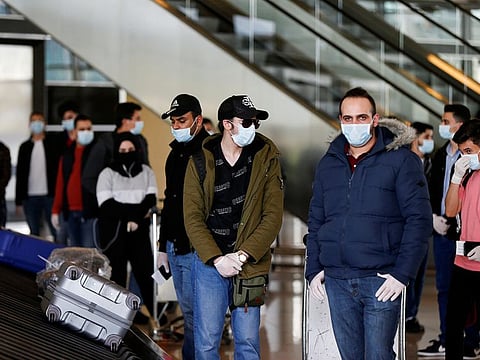Coronavirus: Jordan reports 21 new COVID-19 infections days after restrictions eased
New cases come after eight days of zero cases across the country

Dubai: Jordan has reported 21 new coronavirus infections after eight days of zero cases across the country, and four days since the kingdom lifted all curbs on economic activity.
According to an official source at the Epidemic Committee, the new cases include a driver in Mafraq who transmitted the infection to seven people in Irbid.
The source has not ruled out the possibility of recording new cases when the results of 120 samples, which were collected from people in Irbid and Mafraq, would be released.
The detection of the new COVID-19 cases came four days after the lifting of the tight restrictions on economic activity in the latest easing of coronavirus lockdown rules to help jump-start the cash-strapped economy.
Jordan’s Health Minister Saad Jaber said the new cases bring the total number of infections to 299 across the kingdom. The newly-diagnosed patients also include four in Irbid and two in Amman who had been in direct contact with the previously infected patients.
He announced the recovery of nine COVID-19 patients. The medical teams have conducted 1,220 coronavirus tests in different regions across the country.
Dr. Jaber reassured population in Wadi Musa, a town located in the Ma’an Governorate in southern Jordan, that all the 250 tests conducted for people living there came negative.
Lifting restrictions on movement aimed at allowing more businesses to reopen to help economy regain activity.
Almost 18 days ago, Jordan began to easing restrictions across the country where public transport and taxi services were allowed to resume with passenger restrictions and safety guidelines, including compulsory wearing of face masks and gloves. However, universities and schools will remain closed and the night curfew will continue.
The government imposed the curfew shortly after King Abdullah II enacted an emergency law that paralysed daily life, and ordered shops and firms to close, leaving many daily wage earners struggling without pay.
Meanwhile, Tariq Hammouri, Minister of Industry and Trade said businesses and industries would now be able to resume their activities and production, a move that aims to help the badly impacted economy recover.
Sign up for the Daily Briefing
Get the latest news and updates straight to your inbox



